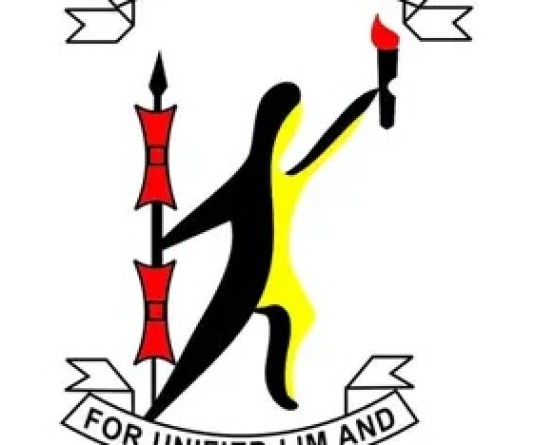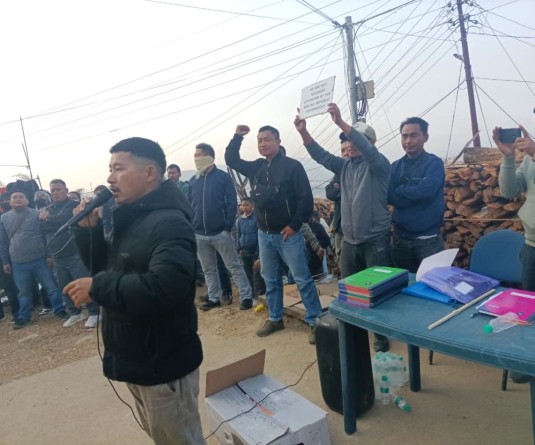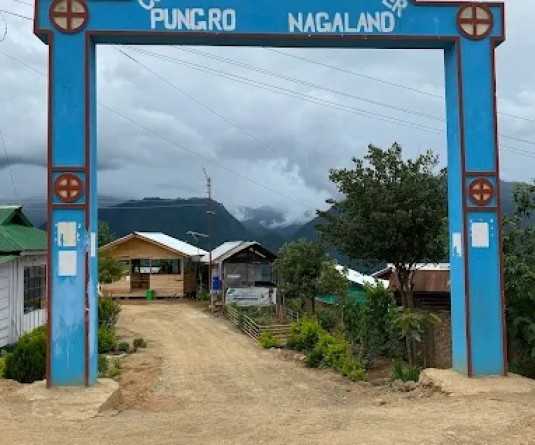
NEW DELHI/DIMAPUR, MAY 4 (MExN): The Forum for Naga Reconciliation (FNR) today pointed out that “Naga nationalism does not lie in protecting our borders, but in bridging divides urgently.”
“We are not looking beyond our borders for precedents. Obsessed with borders we have not erected, we are self-victimizing of others making. Naga nationalism does not stop at our borders. Naga nationalism can proliferate and our minds need imagination and creative politics”, FNR Convenor Rev Dr Wati Aier said in an open public interaction held at New Delhi. The interaction was part of the FNR’s ‘Walking the Naga Day’ outreach.
Pointing to the formation of the FNR on March 15, 2008 by 39 Naga organizations from all across Naga areas, the Convenor informed that given the ‘intricate’ situation and problem, the FNR was conceived ‘in this urgent context’.
The ongoing series of public interaction comes ten years after the ‘Journey of Common Hope’ initiated by the FNR began in order to end hostilities and bring reconciliation among Naga political groups.
Senior FNR member and renowned peace activist Niketu Iralu in his address said that what the FNR was doing through its work was to get the Nagas to re-examine themselves. “Unless we do that our society will become impossible to function”, he said and pointed out that ‘reconciliation is the only thing we have to do if we are to have a future”.
Giving an insight to the current dynamics in Naga society, Iralu said that the Naga understanding of identity was strong but “we are tested and shaken because of our division”. He suggested that Nagas must sacrifice their ‘selfishness for our common future’.
Meanwhile the FNR informed that 267 meetings were held with the Naga National Groups between April 2008 and November 2014. The FNR maintained that its position on Naga reconciliation was ‘a process and that it had no intention of ‘side-lining the issue of Justice’.
While pointing out that the question of justice was pertinent especially when Naga society was trying to emerge from its violent past, the FNR’s stance was for a just society and the need “to address justice contextually”.
“Inducing justice before its time could be suicidal”, the FNR maintained. It made clear that ‘with justice in mind’, the FNR had intentionally worked with the signatories of the Covenant of Reconciliation (CoR) at the highest level of leadership.
“From the end of 2009 to the middle of 2011, in the search of creating the space for admittance of wrongs and forgiveness towards the Journey of Common Hope for a shared future the FNR has engaged with our Naga Political Groups (NPGs)” , the FNR Convenor disclosed.
On the idea and vision behind celebrating Naga Day on January 10 of every year as announced, the FNR cautioned that if Nagas do not develop ways to publicly confront the emotional consequences of hatred, jealousy, attitudes of superiority, and division, these consequences will continue to burn us to annihilation.
“Naga Day implored Nagas to think generously outside of the box of colonial frontiers—a tool par excellence of divide”, the FNR said.
“Walking the Naga Day is to locate our place, and offer everyone the chance to participate in the transformation, by finding a common strength to remake our world”, it added.
The public interaction also witnessed discussion on pertinent issues related to Naga reconciliation, tribal identity, the important question of justice and dialogue. The interaction was moderated by student leaders from Delhi, Akhum David Longkumer and Kapesa Pfokrelo. The programme was chaired by FNR member Dr P. Ngully.
FNR members engaged in interaction with several groups, including students from Jawaharlal Nehru and Delhi University, Naga Students Union Delhi and Naga Peoples Movement for Human Rights Delhi.
The public interaction will continue on Saturday with other Delhi based Naga organization followed by Church visits on Sunday.






